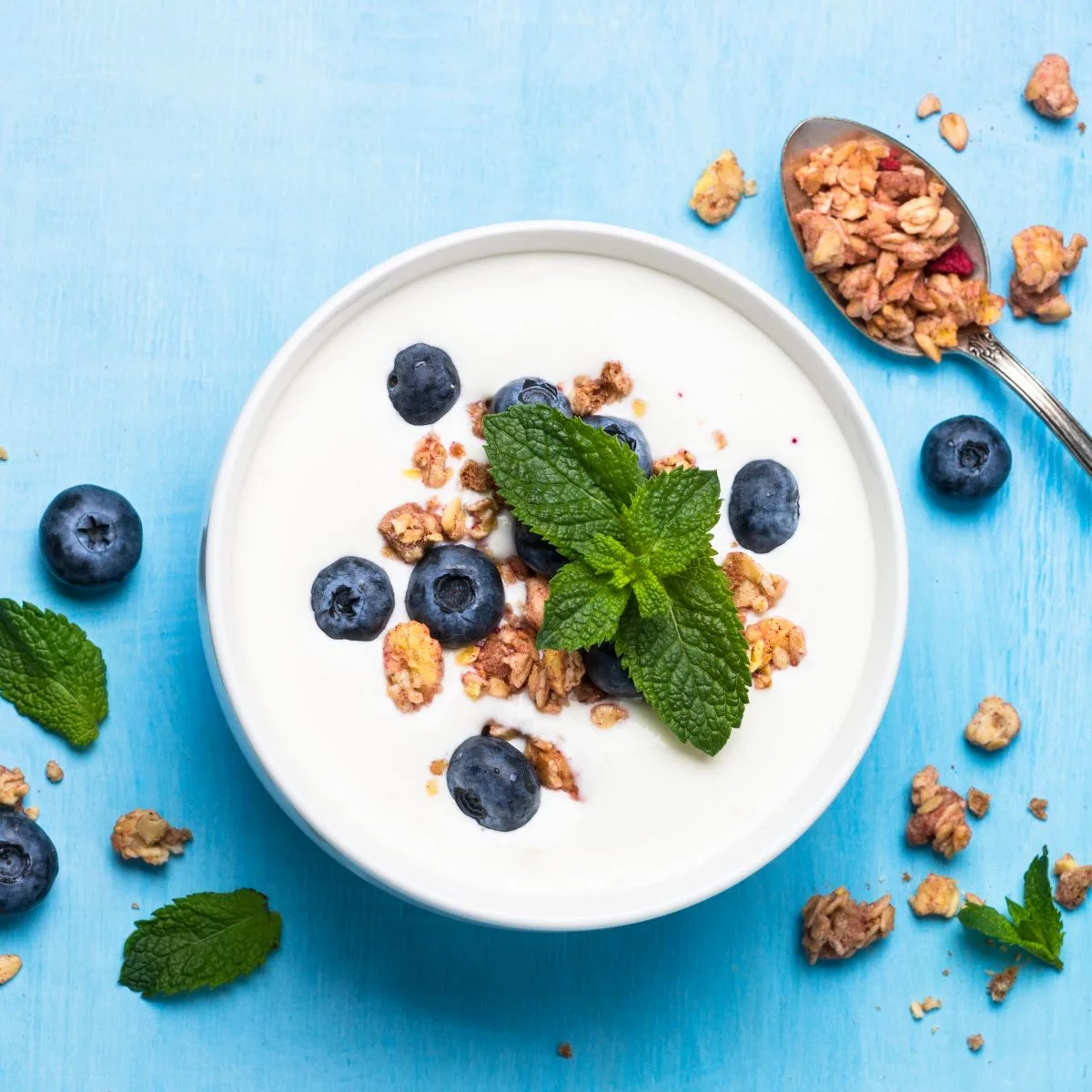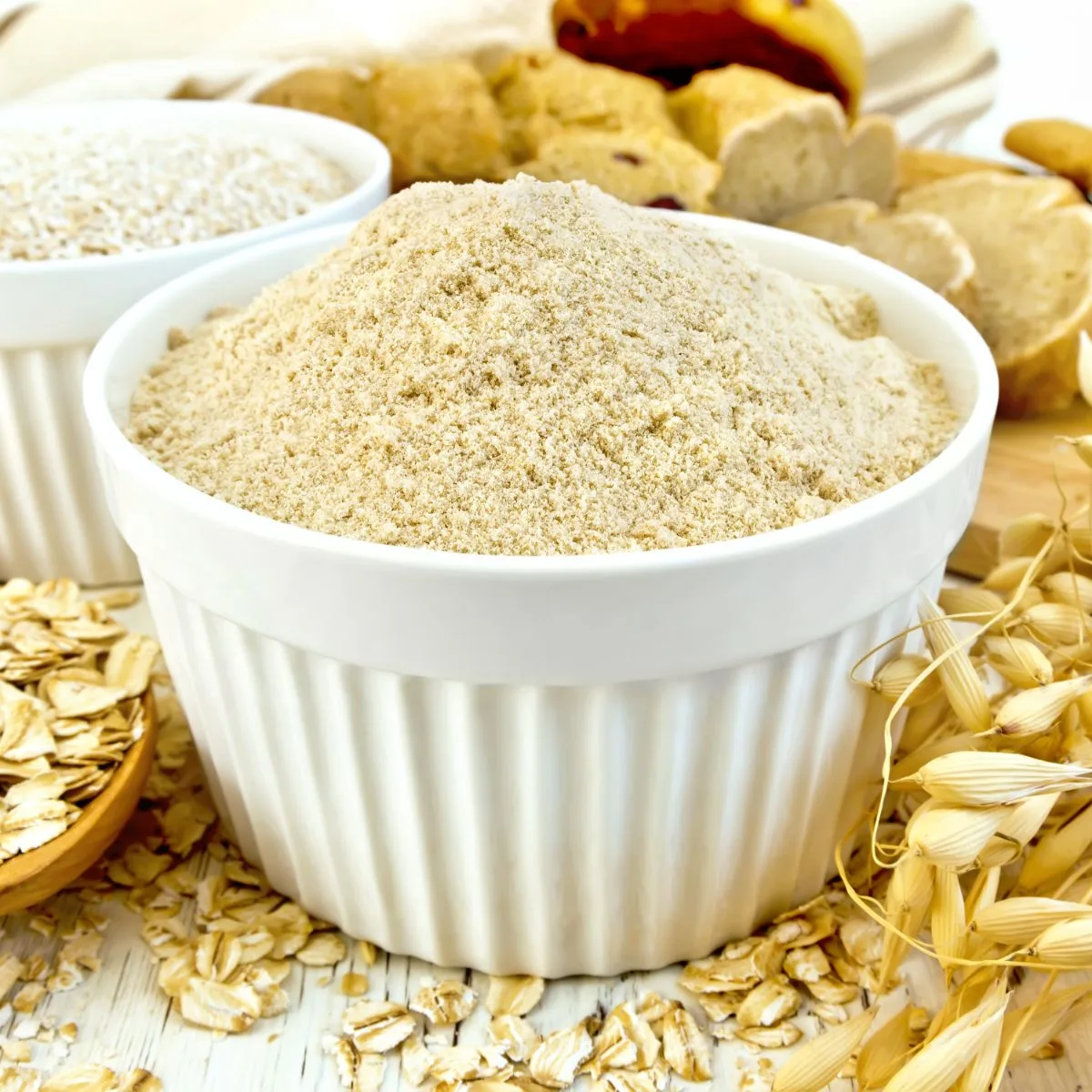Oats and oatmeal have been dietary staples for centuries, cherished for their versatility and rich nutritional profile.
I’ve seen firsthand how incorporating this humble grain into daily meals can lead to profound health improvements.
Personally, I start most mornings with a hearty bowl of oatmeal, and it’s become a beloved ritual.
Not only do oats offer a comforting start to the day, but their benefits extend far beyond mere sustenance.
Health Benefits of Eating Oats and Oatmeal:
Heart Health and Cholesterol Reduction
Oats are particularly renowned for their heart health benefits, largely due to the presence of beta-glucan, a type of soluble fiber found in high concentrations in oats.
Beta-glucan has a remarkable ability to reduce cholesterol levels significantly. It forms a gel-like substance in the gut that binds to cholesterol-rich bile acids, which the body then excretes, thereby lowering the amount of cholesterol circulating in the bloodstream.
Numerous studies have underscored the heart-healthy properties of oats. Consuming just 3 grams of beta-glucan daily has been shown to lower cholesterol levels by 5-10%, which in turn significantly reduces the risk of heart disease and stroke.
One large-scale study involving nearly 55,000 participants found that regular consumption of whole grains, including oats, reduced the risk of heart attacks.
Further research published in the British Journal of Nutrition highlighted that oats could lower both systolic and diastolic blood pressure. High blood pressure is a major risk factor for heart disease, and managing it is crucial for maintaining cardiovascular health.
The study demonstrated that incorporating oats into the diet could support this aspect of health, making them a valuable food for anyone looking to improve their heart health.
The effectiveness of oats in promoting heart health is not just theoretical but has been observed in real-world scenarios.
For instance, individuals who include oats as a regular part of their diet often experience measurable improvements in their lipid profiles and blood pressure readings, underscoring the practical benefits of this nutritional powerhouse.
By making oats a staple in your diet, you can harness these heart-protective benefits and enjoy a healthier, more resilient cardiovascular system.
Blood Sugar Control and Diabetes Management
Managing blood sugar levels is essential for both preventing and managing diabetes, and oats can be a valuable ally in this endeavor.
The magic lies in the soluble fiber found in oats, which helps slow the absorption of sugar into the bloodstream. This prevents the sudden spikes in blood glucose levels that can be particularly challenging for individuals with type 2 diabetes.
A critical factor contributing to the effectiveness of oats in managing blood sugar is their low glycemic index (GI).
Foods with a low GI release glucose more gradually and steadily, providing a more consistent energy supply and avoiding the sharp peaks and valleys in blood sugar levels.
This gradual release of energy is particularly beneficial for maintaining stable blood glucose levels throughout the day.
The Mayo Clinic Health System highlights the role of fiber and protein in oats in promoting slower glucose release. This makes oats an excellent choice for those managing diabetes.
The fiber in oats not only slows down digestion but also prolongs the feeling of fullness, which can help control appetite and support weight management—a crucial aspect of diabetes management.
Furthermore, research has shown that the beta-glucan in oats can improve insulin sensitivity, which is a significant factor in controlling blood sugar levels.
Improved insulin sensitivity means the body is better able to use insulin effectively, reducing the need for extra insulin production and making it easier to manage diabetes.
Incorporating oats into your diet can be simple and enjoyable.
From traditional oatmeal and overnight oats to adding oat flour to baked goods, there are countless ways to make oats a regular part of your meals.
Whether you’re looking for a hearty breakfast or a nutritious snack, oats can provide a balanced and sustained energy release, helping to keep your blood sugar levels in check.
Digestive Health and Regularity
Oats are a powerhouse for promoting digestive health and ensuring regularity, thanks to their rich content of dietary fiber.
They contain a balanced mix of soluble and insoluble fibers, each playing a unique role in maintaining a healthy digestive system.
Insoluble fiber, found abundantly in oats, adds bulk to the stool, which helps promote regular bowel movements and prevents constipation.
This type of fiber does not dissolve in water, but it passes through the digestive system largely intact, speeding up the transit of food and waste through the gut.
This can be particularly beneficial for those who struggle with sluggish digestion or irregular bowel movements.
On the other hand, soluble fiber in oats, primarily in the form of beta-glucan, forms a gel-like substance when it mixes with water in the gut.
This gel softens the stool, making it easier to pass and thus easing conditions like constipation. Moreover, soluble fiber helps to regulate the digestive process, ensuring that nutrients are absorbed more efficiently and consistently.
Beyond aiding regularity, oats play a crucial role in supporting a healthy gut microbiome. The prebiotic fiber in oats acts as food for the beneficial bacteria residing in our intestines.
A thriving gut microbiome is essential for overall digestive health, as it helps break down food, produces essential nutrients, and protects against harmful bacteria and infections.
Weight Management and Satiety
When it comes to managing weight and promoting satiety, oats emerge as a powerful ally in the battle against obesity.
Their high fiber content is particularly effective in promoting a feeling of fullness, which can help reduce overall calorie intake and support weight loss efforts.
One of the key components here is beta-glucan, a type of soluble fiber found in oats. Beta-glucan increases the levels of peptide YY (PYY), a hormone released in the gut in response to eating, which signals the brain that you are full.
The satiety-inducing effect of oats is further amplified by their nutritional profile. Oats are relatively low in calories yet high in essential nutrients, making them an ideal food choice for those looking to lose or maintain weight.
For instance, a half-cup of rolled oats cooked in water contains approximately 165 calories, 4 grams of fiber, and 6 grams of protein. This combination not only helps keep you satisfied for longer periods but also provides the necessary nutrients to fuel your body without excess calories.
One of the reasons oats are so effective in promoting fullness is their ability to absorb water and expand in the stomach. This increase in volume can help delay gastric emptying, which means food stays in your stomach longer, extending the feeling of fullness.
Additionally, the slow digestion of beta-glucan fiber ensures a steady release of glucose into the bloodstream, preventing sudden spikes and crashes in blood sugar levels that can trigger hunger pangs.
The benefits of oats for weight management are supported by numerous studies. For example, research published in the Journal of the American College of Nutrition found that participants who consumed oatmeal felt fuller and less hungry compared to those who ate ready-to-eat breakfast cereals.
This study highlighted the role of oats in controlling appetite and reducing the overall intake of calories throughout the day
Rich Source of Antioxidants
Oats are a treasure trove of antioxidants, particularly notable for containing a unique group called avenanthramides.
These compounds are not only rare but also powerful, offering a myriad of health benefits that extend beyond basic nutrition. Avenanthramides are renowned for their potent anti-inflammatory properties, which play a crucial role in protecting against cardiovascular diseases.
One of the primary ways avenanthramides benefit cardiovascular health is by enhancing the production of nitric oxide. Nitric oxide is a molecule that dilates blood vessels, improving blood flow and thereby reducing blood pressure.
This vasodilation effect helps prevent hypertension, a significant risk factor for heart disease and stroke.
But the benefits of antioxidants in oats don’t stop there. They also combat oxidative stress, a condition caused by an imbalance between free radicals and antioxidants in your body. Oxidative stress is linked to a variety of chronic diseases, including heart disease, diabetes, and cancer.
By neutralizing free radicals, antioxidants like those found in oats help protect cells from damage and reduce inflammation.
Avenanthramides also exhibit other anti-inflammatory properties that can be beneficial for overall health. For instance, they can inhibit the expression of pro-inflammatory cytokines and adhesion molecules, which are involved in the inflammatory response.
This anti-inflammatory action can help alleviate symptoms of chronic inflammatory conditions and improve overall immune function.
In addition to avenanthramides, oats contain other antioxidants such as ferulic acid and phytic acid. Ferulic acid is known for its ability to neutralize free radicals and boost the activity of other antioxidants. Phytic acid, while often misunderstood, has antioxidant properties that protect against oxidative damage in the body.
Nutrient-Dense and Affordable
Oats stand out not only for their nutritional richness but also for their affordability, making them a staple that can fit into almost any budget. This dual advantage ensures that a wide range of people can access the myriad health benefits that oats offer.
One of the most remarkable aspects of oats is their impressive nutritional profile.
They are a rich source of essential vitamins and minerals that are crucial for maintaining overall health.
Key nutrients found in oats include manganese, phosphorus, magnesium, copper, iron, zinc, folate, and vitamin B1 (thiamine).
Each of these nutrients plays a vital role in supporting various bodily functions.
Magnesium, for instance, is present in significant amounts in oats. This mineral is essential for numerous physiological processes, including muscle and nerve function, blood sugar control, and protein synthesis. Consuming oats regularly can help ensure you meet your daily magnesium needs.
Iron is another critical nutrient found in oats, vital for the production of hemoglobin, the protein in red blood cells responsible for transporting oxygen throughout the body. Adequate iron intake is essential to prevent anemia and to ensure that your tissues and organs receive enough oxygen to function correctly.
Oats are also an excellent source of phosphorus and zinc. Phosphorus is necessary for the formation of bones and teeth, while zinc supports immune function, protein synthesis, and DNA production. The presence of folate (vitamin B9) in oats further enhances their nutritional value, as folate is crucial for cell division and the production of DNA, making it essential for growth and development.
Vitamin B1 (thiamine) found in oats is vital for energy production and the proper functioning of the nervous system. This vitamin helps convert carbohydrates into energy, which is essential for maintaining energy levels throughout the day. Copper, another mineral present in oats, aids in the formation of red blood cells and supports immune function.
